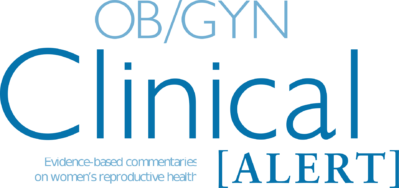
OB/GYN Clinical Alert – July 1, 2021
July 1, 2021
View Issues
-
Management of Heavy Menstrual Bleeding: Levonorgestrel-Releasing Intrauterine System vs. Endometrial Ablation
In this multicenter, randomized, noninferiority trial among patients aged 34 years and older with heavy menstrual bleeding, the levonorgestrel-releasing intrauterine system did not meet the noninferiority threshold when compared to endometrial ablation for mean blood loss at 24 months following intervention. Both interventions did lead to large decreases in blood loss and comparable satisfaction and quality-of-life scores.
-
The Association Between SSRIs and Congenital Anomalies
In this synthesis involving 15 meta-analytic studies, four studies demonstrated an association between paroxetine use during pregnancy and increased risk of major congenital anomalies (relative risk [RR], 1.18 [95% confidence interval (CI), 1.05, 1.32] to 1.29 [95% CI, 1.11-1.49]). For all selective serotonin reuptake inhibitors (SSRIs), the RR for major anomalies (1.10 [95% CI, 1.03, 1.16] to 1.27 [95% CI, 1.09, 1.47]) and cardiac defects (1.06 [95% CI, 0.94, 1.18] to 1.36 [95% CI, 0.61, 3.04]) were increased. This meta-analysis suggests an increased risk of cardiac and major anomalies with SSRI use, but the results should be interpreted with caution, since all included studies were meta-analyses of retrospective cohort studies.
-
When Is the Ideal Time in the Menstrual Cycle for IUD Insertion?
In this retrospective cohort study, women using the levonorgestrel intrauterine device for noncontraceptive indications had higher expulsion rates (38% vs. 17%, P = 0.03) when insertion occurred on day 1 to day 8 of the menstrual cycle compared to after day 8.
-
Evaluation of an Inpatient Postpartum Human Papillomavirus Immunization Program
In this cohort study, results from two years of an inpatient postpartum HPV vaccination program are presented. Overall, their results show an increased rate of immunization (hazard ratio of 2.51) and an increased proportion of women completing the vaccination series (35.8% of those receiving an inpatient dose completed the series compared to 9.3% of those who did not get the inpatient dose).
